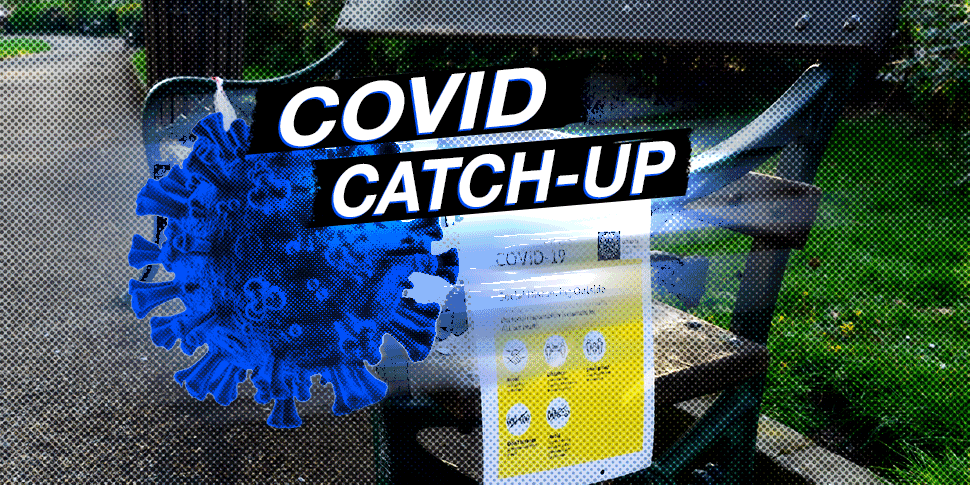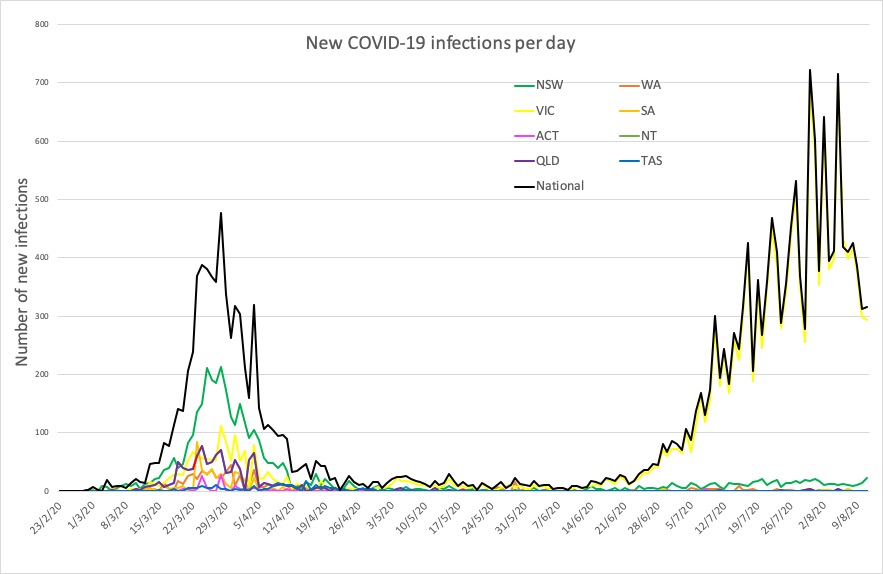Five major ID societies have highlighted the dangerous plight of those in long-term facilities such as detention centres and prisons.
Welcome to The Medical Republic‘s COVID Catch-Up.
It’s the day’s COVID-19 news into one convenient post. Email bianca@biancanogrady.com with any tips, comments or feedback.
12 August
- Vulnerable populations, such as asylum seekers and prisoners, need greater focus for COVID-19 protection.
- Cruise industry in free-fall due to pandemic.
- US CDC publishes guidance for K-12 schools on face masks.
- Russia says its COVID-19 vaccine is ready, but there’s no data from large clinical trials.
- HDL and HbA1C could mediate link between obesity and COVID-19.
- Latest COVID-19 infection figures from around Australia.
- Infectious diseases societies – including in Australia – have called for the release of asylum seekers and detainees to reduce the risk of COVID-19 outbreaks among vulnerable populations.
In a joint statement, five major infectious diseases societies highlighted the dangerous plight of those in long-term facilities such as detention centres and prisons, and of minorities, immigrants and the poor living in high-risk circumstances, neighbourhoods and dwellings.
“We have seen repeatedly that this virus will find vulnerable and marginalised populations where transmission can be rapidly amplified,” said ASID’s immediate past president Professor Josh Davis, in the statement.
The group called on governments to prioritise public health interventions to prevent the spread of COVID-19 in these communities; ensuring testing and medical care is available and accessible, that measures to support personal hygiene is in place, and that there is culturally and linguistically appropriate public health messaging. - If your business is suffering from the COVID-19 pandemic, spare a thought for the cruise industry, where revenue is down by as much as 99% compared to pre-pandemic days.
But then again, given the industry’s contribution to the outbreak, particularly in NSW (looking right at you, Ruby Princess), pardon us for feeling a little less than sympathetic. - The US Centers for Disease Control has managed to tacitly recommend the use of cloth face masks for school students without actually putting those exact words in writing (presumably to avoid angering the Freedom Brigade). They have published guidance for K-12 school administrators on the use of cloth face ‘coverings’ (shhh … don’t call them ‘masks’), saying that these are important to help slow the spread of COVID-19.
The guidance addresses the issue that cloth face masks could be challenging for some students – particularly younger children or those with respiratory issues or special needs – or in situations such as working with children or staff who are hearing-impaired.
They also advised that schools have policies to address stigma, discrimination or bullying that may come about from individuals choosing to wear or not wear masks. They also said schools should have a plan in place to deal with parents or caregivers who don’t agree with the policies, such as referring them to the CDC’s advice on the issue. - Any volunteers stepping up to be the first to get the Russian-made COVID-19 vaccine Sputnik V, despite there being no phase 3 trials of the product? Yeah, me neither.
- It’s hardly news anymore, but a large population-based UK study has highlighted BMI and waist-to-hip ratio as risk factors for COVID-19 hospitalisation, but with an emphasis on the key role that HDL and blood sugar play in mediating this interaction.
Analysis of data from 334,329 adults in the UK Biobank study, published in PNAS, found around 0.2% were hospitalised with COVID-19. There was a linear relationship between BMI and risk of COVID-19 even from those with modestly elevated weight, compared to normal weight. However this association was significantly reduced after accounting for HbA1C and HDL cholesterol levels, such that higher HbA1C was associated with a greater risk, and higher HDL was associated with a lower risk. - Here are the confirmed COVID-19 infection numbers around Australia to 9pm Tuesday:
National – 21,713, with 331 deaths and 673 hospitalised.
ACT – 113
NSW – 3897
NT – 33
QLD – 1089
SA – 459
TAS – 229
VIC – 15,251
WA – 642



